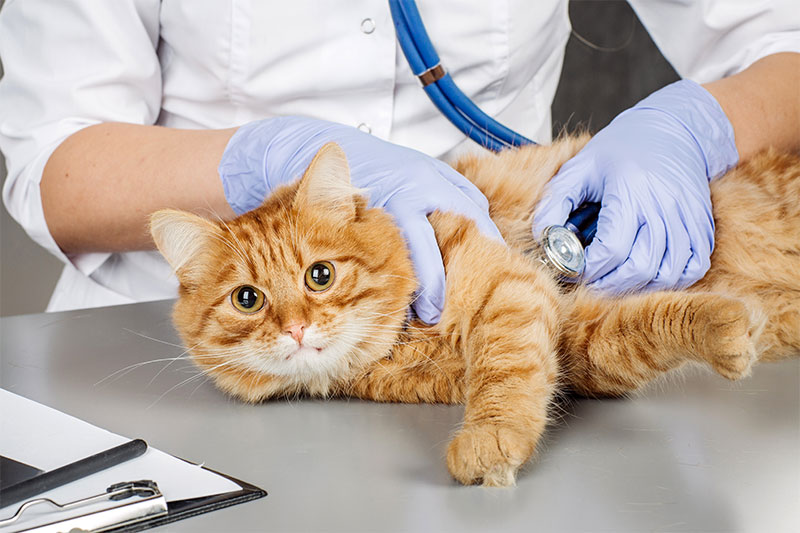
When you bring your pet to the vet (or have us visit your farm or stable), you might wonder why we recommend running routine laboratory work on your medicated animals that appear to be healthy and responding normally to their medications.
Why We Recommend Lab Work for Medicated Pets
Laboratory tests, such as blood tests and urinalyses, check things like a pet’s organ function (liver, kidney, and pancreas), protein levels, hormone levels, blood counts, blood sugar, and electrolytes.
All of this information can reveal potential health problems that are not visibly detectable in a pet. These tests also reveal issues that might be affecting the way an animal processes and responds to medications.
All animals’ body chemistry can change slightly over time, as a side effect of taking medications, and even as a result of changes in their environment. This means that a type or dose of medication that was sufficient and effective in the past could require adjusting in the future to either increase its efficacy or decrease certain side effects that can threaten your pet’s ongoing health.


Common Pet Medications That Require Routine Lab Work
We recommend lab work for animals who are taking some of the following medications:
- Apoquel - This medication used to ease itching can result in too-low white blood counts.
- Digoxin - Organ function and levels of medication require monitoring to avoid toxicity.
- Insulin - Blood sugar levels should be continuously monitored in diabetic patients.
- Non-Steroidal Anti-Inflammatory Drugs - Pain medications like carprofen and meloxicam can be harmful to a pet's kidneys and liver. We recommend testing pets before administration and during long-term use.
- Thyroid Replacement Drugs - Hormone levels need to ensure ongoing dosage is adequate.
This list is not exhaustive. If your pet is on long-term medication or needs to start a new medication, we encourage you to talk with our veterinarians about lab work.
Laboratory Diagnostics for Small Pets, Livestock, and Horses in Tucson
At Adobe Veterinary Center, we offer our patients thorough care with a full-service, in-house diagnostic laboratory. Whether you’re maintaining the health of your dog, cat, livestock, or horses, our veterinarians can help you monitor their medication use.
To learn more about the importance of regular lab testing for pets who are on long-term medications, we welcome you to contact Adobe Veterinary Center in Tucson today.








